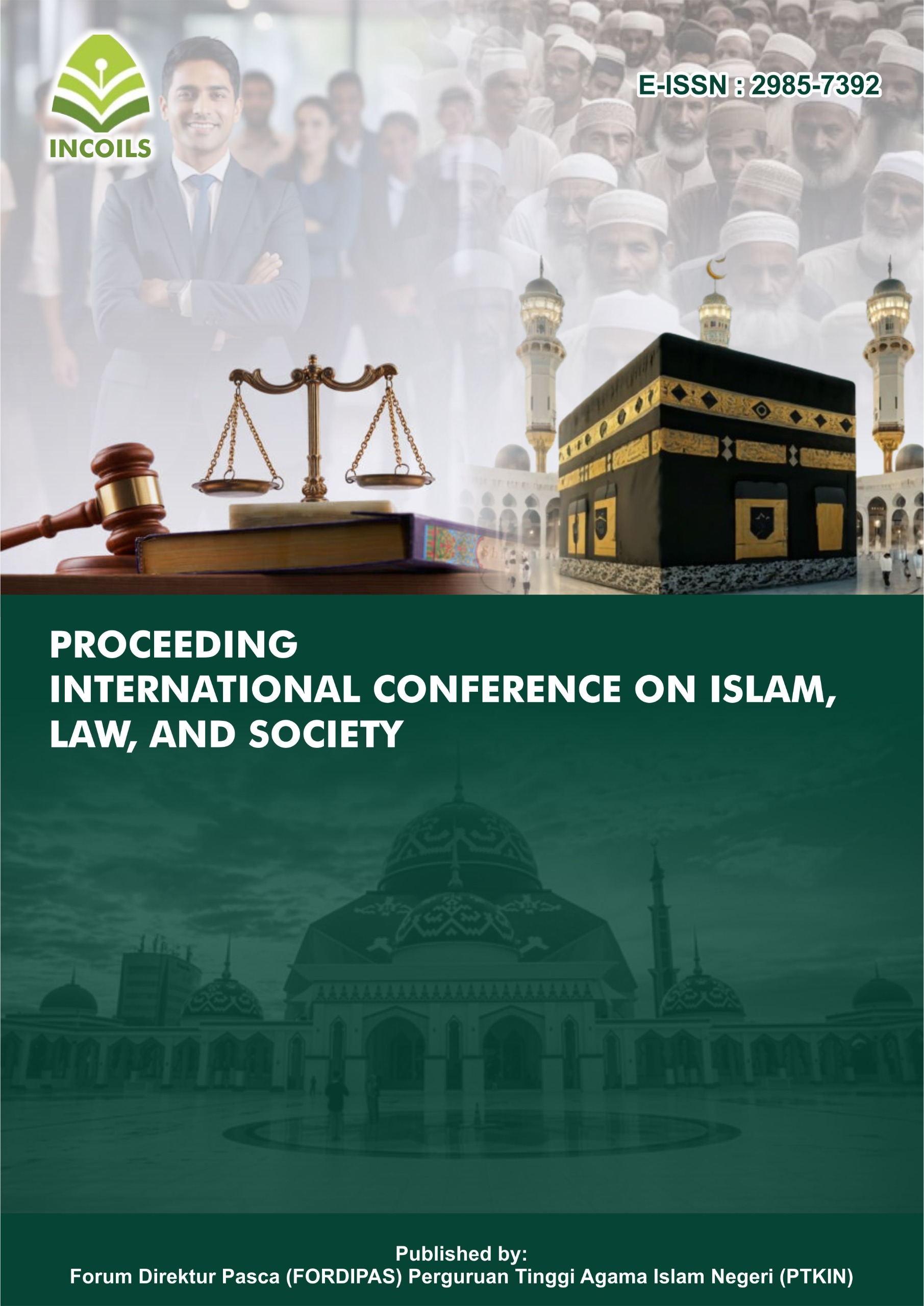THE CONTRIBUTION OF BOARDING SCHOOLS AND KYAI AS SYMBOLIZATION AND MISTIFICATION OF THE BASE OF STRUGGLING NATIONALISM FOR THE UNITED STATE OF THE REPUBLIC OF INDONESIA (NKRI)
DOI:
https://doi.org/10.70062/incoils.v2i1.43Keywords:
Kyai, Pesantren, Struggle, NKRIAbstract
Many Indonesian figures have the idea of independence , but all of them cannot be separated from religious ideology. Even though efforts to marginalize religion are still being attempted, the patriots are always moving forward. Many obstacles will come if religion is upheld, but for the sake of an independence that is always hoped for and looked forward to. The figure of a figure cannot be released in a struggle. The kiai, who became the standard for Islamic boarding school students, really understood the conditions at that time, not reciting and studying what was used as the core standard , but how to take care of themselves and the country. Aside from being a religious preacher, students and kiai, clerics, it was also a stronghold of colonial resistance. His struggle did not stop to defend the country, to the extent that it was said that jihad against the invaders was legally obligatory, this was not declared during the deliberation of religious leaders in Surabaya where it was at the PBNU building, which was attended by NU consuls from Java and Madura, the meeting was also attended by the commander in chief hezbollah. Islamic boarding schools in Java and Madura became the headquarters of the non-regular Sizbullah troops and Sabilillah recitations turned into training in using weapons. This research uses a descriptive qualitative approach, while the method uses library research. These methods and approaches are considered suitable and appropriate regarding the title of this study.
References
Abd. A'la. 2016, Pesantren Strategy Towards International education : Islamic Education advances the people and strengthens the defense of the country, (Jakarta: Kencana,), First edition
Alfian, et al. 2007, Islam In Southeast Asia. (Jakarta: PT Raja Grafindo,)
Anwar Rosihan, 2011 , The Rise and Fall of the Islamic Movement in Indonesia. (Jakarta: Fadli Zon Library.)
Drs. Marwan Saridjo , , Drs Abd. Rachman Shaleh, and Mustofa Syarif, BA. 1979 , History of Islamic Boarding Schools in Indonesia, ( Jakarta: Dharma Bhakti,)
Ira. M. Lapidus, social history of Muslims,
KH. Amin Sepuh 1893 had attended Islamic boarding school KH. Cholil Bangkalan, with (at that time his Ustadz) KH. Hasyim Asy'ari (Read; Stories of Wisdom: KH. Abdurrahman Arroisy).
M. Nazir, 1985, Research Methods , (Jakarta: Ghalia Indonesia,),
Mahmud, 2011 , Educational Research Methods, (Bandung: Faithful Readers ,)
Marwati Djoened, et al, 2008 , National History of Indonesia V, (Jakarta: Balai Pustaka,)
Muyrifah Sunarto, 2005, history of Indonesian Islamic civilization , (Jakarta: PT Raja Grafindo Persada,)
Rizem Aized, 2016 Ulama' Nusantara , (pangruwating, yogyakarta, press,)
Sugiyono, 2007, quantitative, qualitative and R&D research methods . (Bandung: Elfabeta.)
Sugiyono, Quantitative, Qualitative Research Methods, and R&D. (Bandung: Alfabeta, CV. 2017),
Sutomo, 2008, Battle of 10 November 1945, Actions and Experiences of a Historical Actor, (Jakarta: Visimedia,)
Tamyiz Burhanudin, 2001 Islamic Boarding School Akhlaq: Views of KH. Hasyim Asy'ari, (Yogyakarta: Ittiqo press,)
Tan Swie Ling, The Dark Age of Pancasila: The Face of Indonesian Nationalism,
Data and Websites
Quoted from the book “ to be the superpower country” by KH. Sa'adih Al-Batawi & Dr. nandang najmiulmunir, Ir, MS in http://fero-assamawaat.blogspot.com/2011/12/next-peran-ulama-tasawuf-dalam.html
http://fero-assamawaat.blogspot.com/2011/12/next-peran-ulama-tasawuf-dalam.html
Downloads
Published
How to Cite
Issue
Section
License

This work is licensed under a Creative Commons Attribution-ShareAlike 4.0 International License.







